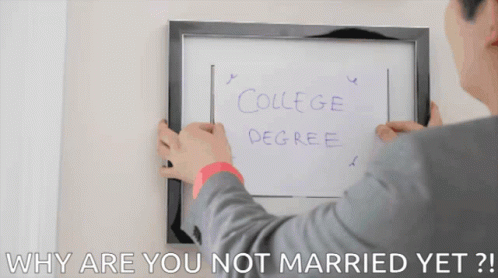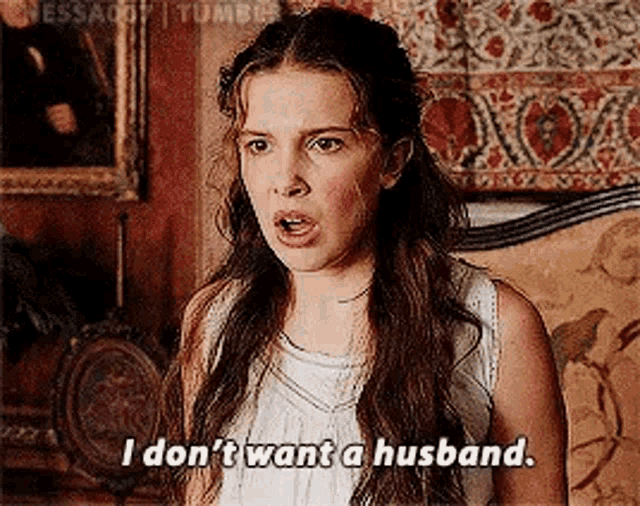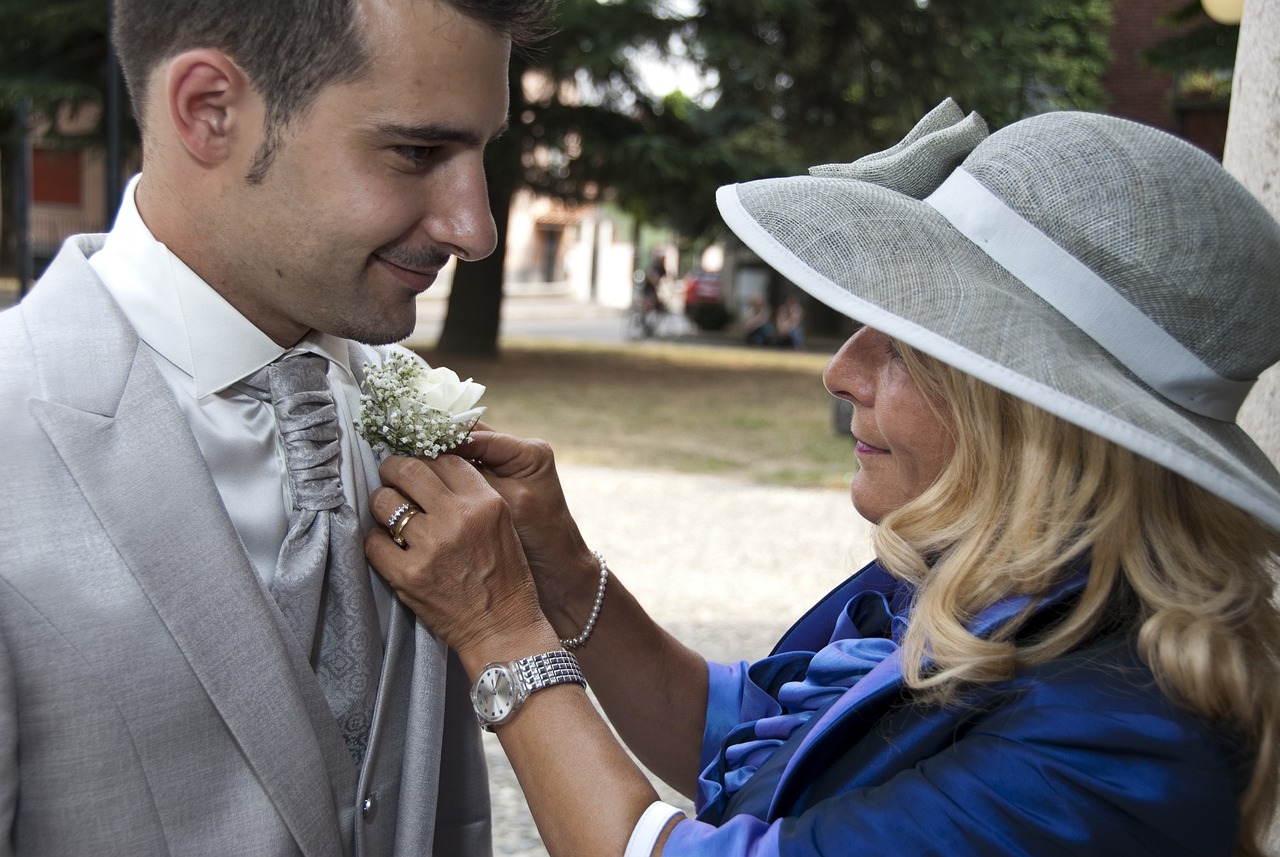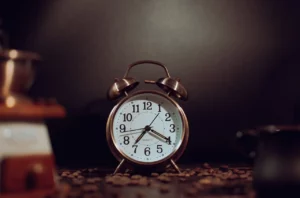Growing up, I was constantly bombarded with the question, “When are you getting married?” from well-meaning relatives and family friends. It seemed like every gathering, from birthdays to holidays, would inevitably lead to someone inquiring about my relationship status and future nuptial plans. While I understood their curiosity, the persistent questioning often felt like an unnecessary pressure, especially during my younger years when marriage was the furthest thing from my mind.
Sarcastic Responses
Witty one-liners
“As soon as I find someone who can tolerate me for more than a week.”
Explanation: This response playfully acknowledges the challenge of finding a compatible partner while also poking fun at one’s own quirks or perceived flaws.
“When my cat decides to propose.”
Explanation: This absurd statement humorously suggests that the likelihood of getting married is about as probable as a pet proposing, effectively dismissing the question in a lighthearted manner.
Serbian proverb: “When Grapes Grow on a Willow Tree.”
Explanation: By referencing an ancient proverb that implies an impossible scenario, this response cleverly deflects the question while adding a touch of cultural wisdom.
“After I finish my quest to collect all the Infinity Stones.”
Explanation: Drawing inspiration from the Marvel Cinematic Universe, this response exaggerates the idea of having an unrealistic goal or task to complete before considering marriage, injecting a dose of pop culture humor.
“Approximately 3.7 seconds after the heat death of the universe.”
Explanation: This response takes a scientific approach to absurdity, referencing a cosmological concept while simultaneously implying an indefinite and practically impossible timeline for getting married.

Exaggerated excuses
“Well, I’m waiting for pigs to fly first.”
Explanation: This idiomatic expression humorously suggests that the likelihood of getting married is as improbable as witnessing an impossible event, effectively dismissing the question in an exaggerated manner.
“Once I become a billionaire and can afford a wedding on Mars.”
Explanation: This response takes the concept of an extravagant wedding to an astronomical level, both figuratively and literally, by suggesting the need for an unrealistic amount of wealth to make such a far-fetched event possible.
“After I finish writing the encyclopedia on procrastination techniques.”
Explanation: This self-deprecating excuse pokes fun at one’s own tendencies to delay or postpone important life events, implying that getting married is a task that continues to be put off indefinitely.
“Right after I complete my training to become a Jedi Master.”
Explanation: By referencing the fictional universe of Star Wars, this response adds a touch of whimsy and escapism to the idea of getting married, suggesting that such a momentous occasion requires otherworldly preparation.
“Just as soon as I figure out how to time travel and go back to when marriage wasn’t a thing.”
Explanation: This response takes a humorous jab at the societal construct of marriage itself, implying a desire to avoid the institution altogether by escaping to a time when it didn’t exist.
Ridiculous timelines
“After I finish binge-watching every show on Netflix.”
Explanation: This response exaggerates the concept of procrastination by suggesting that the monumental task of consuming an entire streaming platform’s content must be completed before even considering the idea of getting married.
“When unicorns start serving as marriage counselors.”
Explanation: By introducing a fantastical and mythical element, this response humorously implies that the concept of marriage is so foreign and daunting that it would require the assistance of magical beings.
“Sometime after Sunday.”
Explanation: This vague and open-ended response playfully avoids providing a specific timeline, leaving the question unanswered while simultaneously implying that the event could potentially occur at any point in the distant future.
“Approximately 47 years, 3 months, and 12 days from now, give or take a few millennia.”
Explanation: This response takes a numerical approach to absurdity, providing a seemingly precise timeline that is ultimately rendered meaningless by the exaggerated and unrealistic time frame.
“Right after I finish counting all the grains of sand on every beach in the world.”
Explanation: By proposing an impossible and never-ending task, this response humorously suggests that the likelihood of getting married is about as feasible as completing such a herculean and impractical endeavor.

Trolling Replies
“I’m just waiting for my arranged marriage to be finalized by my parents.”
Explanation: This response pokes fun at the outdated practice of arranged marriages by suggesting that you’re still following that tradition, even in modern times. It’s an absurd idea that trolls the question in a humorous way.
“As soon as I finish building my fallout shelter for the inevitable apocalypse.”
Explanation: This answer implies that you’re more concerned about preparing for the end of the world than getting married. It’s an over-the-top response that exaggerates the importance of an unlikely event over a traditional life milestone like marriage.
“I’ll get married right after I complete my training to become a professional competitive eater.”
Explanation: This trolling answer suggests that you have an unusual and unconventional aspiration that takes precedence over getting married. It’s an absurd career goal that makes light of the question in a silly way.
“Oh, I’m not getting married. I’m just cultivating a harem of potential spouses.”
Explanation: This response is a tongue-in-cheek reference to polygamous relationships and harems, which are generally frowned upon in modern Western society. It’s a provocative and humorous way to troll the question about traditional marriage.
“I’m waiting for the the Queen of England to personally officiate my wedding ceremony.”
Explanation: This answer takes the idea of a lavish, high-profile wedding to an extreme by suggesting that you won’t get married unless the Queen of England is involved. It’s an outrageous and unrealistic demand that mocks the question in an over-the-top way.
Funny Responses
Playful deflections
“Oh, we’re still debating whether to have a wedding or a space-themed costume party.”
Explanation: This response playfully deflects the question by introducing an unexpected and whimsical alternative to a traditional wedding, injecting a sense of humor and individuality into the conversation.
“Why get married when I can have a lifetime supply of cake without sharing?”
Explanation: By prioritizing the dessert over the institution of marriage, this response takes a tongue-in-cheek approach to dismissing the question while also poking fun at the stereotypical association between weddings and cake.
“I’m waiting for the perfect opportunity to elope with a celebrity crush.”
Explanation: This response combines elements of fantasy and humor by suggesting an unrealistic scenario involving a famous figure, effectively deflecting the question in a playful and imaginative manner.
“I’m holding out for a royal wedding invitation. You know, just in case.”
Explanation: By referencing the grandeur and exclusivity of a royal wedding, this response adds a touch of humor and absurdity to the conversation, implying that one’s own nuptials must meet an unrealistically high standard.
“I’m still trying to decide between a traditional ceremony or getting married by a cult of friendly aliens.”
Explanation: This response introduces an outlandish and humorous alternative to a conventional wedding, effectively deflecting the question while also showcasing a sense of creativity and imagination.
Self-deprecating humor
“When I can manage to adult for more than a day.”
Explanation: This self-deprecating response pokes fun at one’s perceived inability to handle adult responsibilities, implying that the commitment of marriage is a level of maturity that has yet to be achieved.
“Once I stop scaring potential partners away with my extensive collection of Star Trek memorabilia.”
Explanation: By acknowledging and embracing one’s unique interests or quirks, this response injects a dose of self-aware humor while also suggesting that finding a compatible partner may be a challenge due to said quirks.
“As soon as I figure out how to cook something other than instant ramen.”
Explanation: This self-deprecating response humorously acknowledges one’s lack of domestic skills, implying that the ability to prepare a decent meal is a prerequisite for marriage.
“Right after I finish my training montage and become a fully-fledged adult.”
Explanation: By referencing the trope of a movie training montage, this response adds a touch of humor and self-awareness, suggesting that the journey to adulthood and readiness for marriage is a work in progress.
“Just as soon as I learn how to fold a fitted sheet properly.”
Explanation: This response takes a mundane household task and exaggerates its difficulty, implying that the ability to perform such a seemingly simple task is a necessary skill for marriage, while also injecting a dose of self-deprecating humor.
End words
While the question “When are you getting married?” may stem from well-meaning intentions, it can often feel like an unnecessary pressure, especially for those who are not yet ready or interested in taking that step. By responding with humor and sarcasm, we can deflect the question in a lighthearted manner, embracing our individuality and personal timelines.
It’s important to remember that marriage is a deeply personal decision, and the timeline for making that commitment varies greatly from person to person. Some may choose to get married early in life, while others may prefer to wait or even forgo the institution altogether. Regardless of one’s stance, it’s crucial to respect each individual’s choices and refrain from imposing societal expectations or unsolicited advice.
By approaching the age-old question with a sense of humor and levity, we can navigate these conversations with grace and self-assurance, reminding ourselves and others that our paths are our own to forge, and that laughter is often the best medicine for societal pressures.



